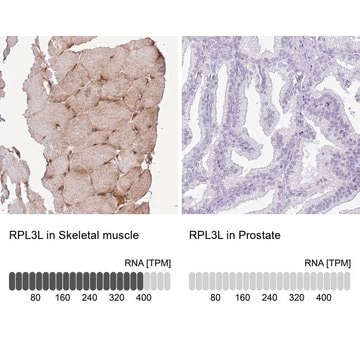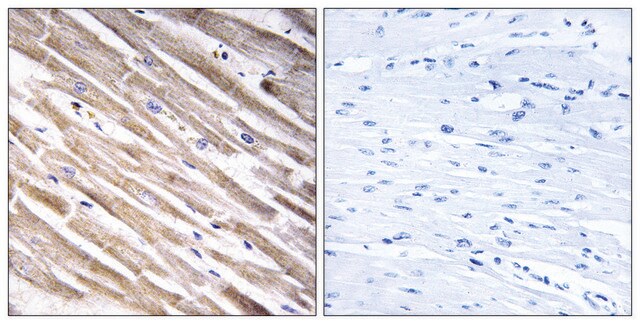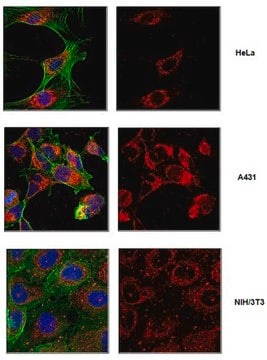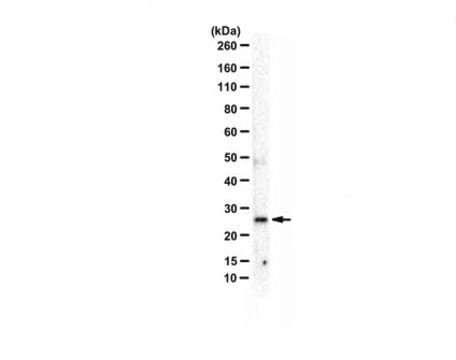ABE1438
Anti-60S Ribosomal Protein L26
from rabbit, purified by affinity chromatography
About This Item
Productos recomendados
biological source
rabbit
Quality Level
antibody form
affinity isolated antibody
antibody product type
primary antibodies
clone
polyclonal
purified by
affinity chromatography
species reactivity
human
packaging
antibody small pack of 25 μL
technique(s)
immunohistochemistry: suitable (paraffin)
western blot: suitable
NCBI accession no.
UniProt accession no.
shipped in
ambient
target post-translational modification
unmodified
Gene Information
human ... RPL26(6154)
Categorías relacionadas
General description
Specificity
Immunogen
Application
Epigenetics & Nuclear Function
Quality
Western Blotting Analysis: A 1:500 dilution of this antibody detected 60S Ribosomal Protein L26 in 10 µg of HEK293 cell lysate.
Target description
Physical form
Storage and Stability
Other Notes
Disclaimer
¿No encuentra el producto adecuado?
Pruebe nuestro Herramienta de selección de productos.
Storage Class
12 - Non Combustible Liquids
wgk_germany
WGK 1
Certificados de análisis (COA)
Busque Certificados de análisis (COA) introduciendo el número de lote del producto. Los números de lote se encuentran en la etiqueta del producto después de las palabras «Lot» o «Batch»
¿Ya tiene este producto?
Encuentre la documentación para los productos que ha comprado recientemente en la Biblioteca de documentos.
Nuestro equipo de científicos tiene experiencia en todas las áreas de investigación: Ciencias de la vida, Ciencia de los materiales, Síntesis química, Cromatografía, Analítica y muchas otras.
Póngase en contacto con el Servicio técnico






![N-[[2-(Diphenylphosphino)phenyl]methylene]-3-methyl-L-valine sodium salt 95%](/deepweb/assets/sigmaaldrich/product/structures/514/394/34f4fd07-0745-48d5-b150-23701865e8a1/640/34f4fd07-0745-48d5-b150-23701865e8a1.png)

